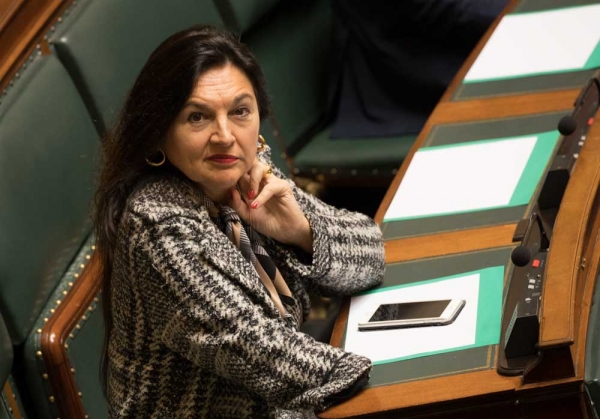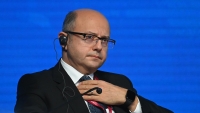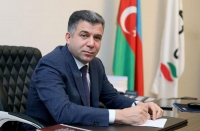Caspian Energy (CE): Madame Minister, the parliament approved the new staff of the European Commission. Which differences between the former and the new staff have you seen and what hopes do you place on the work of the new staff of the Commission in coming 5 years?
Marie Christine Marghem, Minister of Energy, Environment and Sustainable Development of Belgium: The biggest difference we’re seeing in comparison with the former European staff is the will to implement the Green Deal and to achieve the Paris agreement. Therefore the new commissioner Kadri Simson has a very important role to play and fortunately, she’s highly aware of the matter. Minister Marghem has a very good relationship with her. We also consider that the new staff wants to go further in the way of EU energy independence. We are also pride as the Belgians for the nomination of commissioner Didier Reynders who has a very long experience too.
CE: Which economic sectors of the EU and Belgium are in need of investments and subsidies today?
Marie Christine Marghem: The two topics essentials on the European scale are digitalization and innovation. First of all, innovation remains a key factor for the future. It is the same in Belgium, so we have to improve some infrastructure: gas or electricity network for example. It’s the reason why I approved Elia’s (electricity network administrator) development plan until 2030. We will reinforce some electric lines to support the renewable energy flow.
CE: How do you assess the energy security situation? Don’t you think it is in danger due to lower gas prices, which does not stimulate gas supply from new sources, while the European sources are getting exhausted?
Marie Christine Marghem: The most important is to diversify our sources of supply to avoid an excessive dependence on only one type of energy. We consider gas as a transitional energy source. To succeed the nuclear phase out the Parliament approved in April of 2019 the “CRM (capacity remuneration mechanism) law” which will allow the construction of new gas production units in Belgium. On this matter we can see how much innovation is important to reduce the carbon emissions of gas units.
CE: Do you consider it possible to stop an operation of two nuclear reactors in Belgium after 2025?
Marie Christine Marghem: The 2003’s law provides the nuclear phase out in 2025. This nuclear phase out was one of the main concerns of the minister’s cabinet: we developed an Energy Pact with the Regional Ministers until 2030-2050. Furthermore, we will notify the Belgian National Energy and Climate Plan to the European Commission before the end of this year. If the next government wants to change this law it will have to find a new majority.
CE: Does Belgium plan to fully abandon internal combustion engines in favor of electric motors?
Marie Christine Marghem: Belgian long term strategy for 2050 is not achieved yet. We are completing its development. We are working on the Belgian electricity network to enable and increase more electric vehicles. We also have other possibilities such as liquid gas, hydrogen and more.
CE: Isn’t the production of lithium-ion batteries more harmful than petrol production? What solution would you suggest?
Marie Christine Marghem: The two aspects are completely different. You have to consider the whole production process of lithium-ion batteries and evaluate the impact on the environment. We are working on sustainable solutions, recycling included. For instance we have a “Transition Funds”. These Funds are aimed to promote new ways of energy production. It also financially counterbalances the prolongation of two nuclear power stations (Doel 1 and 2) that is 200 million Euros for 10 years.
Petrol sources are limited and we have to find new sources of energy to succeed energy transition.
CE: Which sources of energy are the most efficient in the EU and Belgium?
Marie Christine Marghem: Offshore energy is a real success for Belgium. Offshore wind turbines are more efficient than onshore wind turbines because of the wind’s strength at sea. We have now an installed capacity of 1.5 GW and we will reach the 4 GW in 2030. We have developed an expertise on this field and we now export our technology abroad. On the European ranking, we are on the third place and on the fifth place in the world.
Thank you for the interview










